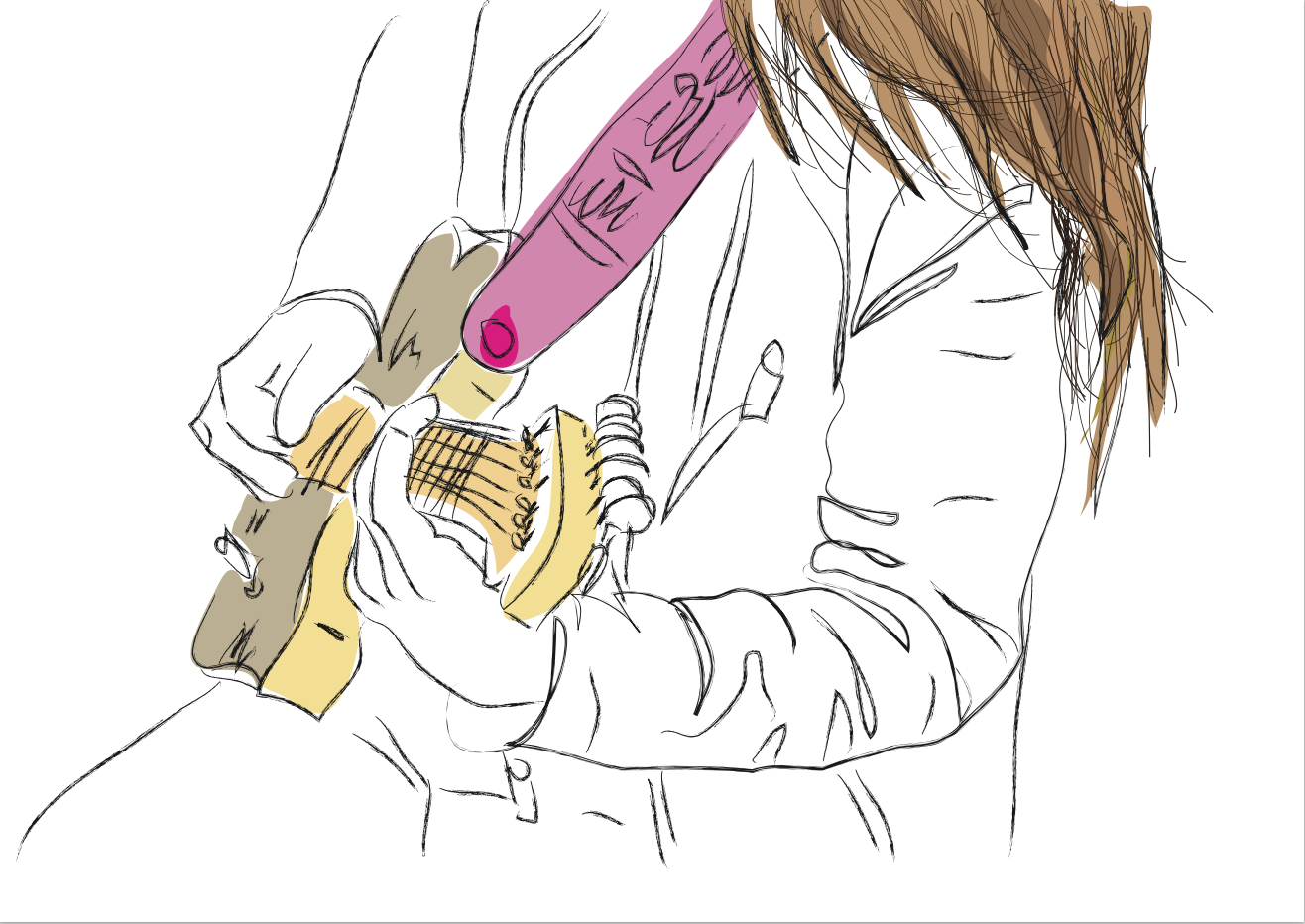Though progressing, rock’s ties with masculinity still linger today
“What’s it like to be a girl in a band? I don’t quite understand.”

That one line from Sonic Youth’s song “Sacred Trickster” had its embers burning in my psyche for a while. Noise-grunge icon Kim Gordon breathily yells it out in the song; her tone touches on annoyance. It’s probably a question she’s been asked many times. The line must’ve also resonated with Gordon too because she named her memoir, Girl in a Band, after the lyric.
The lyric, a dormant rhyme for a while, sprung from its inactivity when my former band, Bitter Old Man, played our first show. I hadn’t really thought about being the only girl in the band—the only difference between my bandmates and I was that I struggled to lift the heavier equipment due to my petite stature. While we were in the process of loading the gear into the venue, I had my guitar strapped around me to tune it.
The show organizer was handing out drink tickets. He approached my three other bandmates, handed them their ticket, and then looked around the little venue for the fourth band member. He saw me tuning my guitar, came up to me and asked if I was “in the band?” I told him I was. Even though I had lugged equipment in, set-up pedals, and had a guitar strapped around my shoulders, he seemed shocked to find out that a rather innocent-looking girl was in this noise-alt-shoegaze-rock-(maybe jazz fusion?) band. I thought about it a little later, and it occurred to me that if I had dressed differently and presented myself in that classic “rock aesthetic” (leather? piercings?), then maybe he wouldn’t have gaped his mouth at my answer.
“Do you want to look cool, or do you want to look attractive?” Gordon was once asked by photographer Michael Lavine, The Guardian reported. Even though cultivating an image for an artist is a major part of making music, the focus on a woman’s image is much sharper. Recently, Bethany Cosentino, frontwoman of Best Coast read a concert review of her show where the reviewer wrote about Cosentino’s outfit rather than her music and performance. “Sexism is alive and well people!!!!! This literally makes my blood boil,” she wrote on her Instagram. “If you aren’t happy with my show that’s perfectly fine, but leave my looks [and] outfit out of it.”
A line can be drawn between Costentino’s recent experience and what Gordon said in an interview published by The Guardian, “the male music writers were cowardly in person. They would then go home and write cruel, ageist things. I assumed they were terrified of women,” Gordon said. “Women aren’t allowed to be kick-ass. I refused to play the game,” she continued. Wardrobe and image shouldn’t take precedent over the music, or, in my case, assumptions of musical ability shouldn’t be based on appearance. Practice for years, throw on whatever you want, and that’s that.



